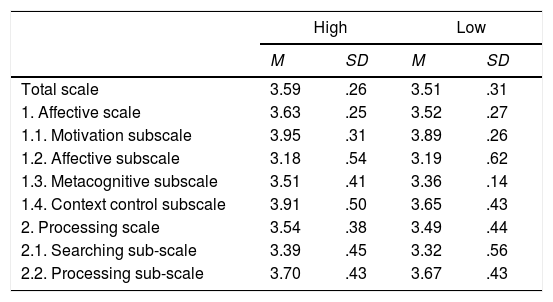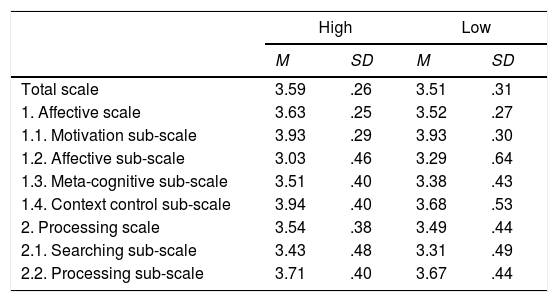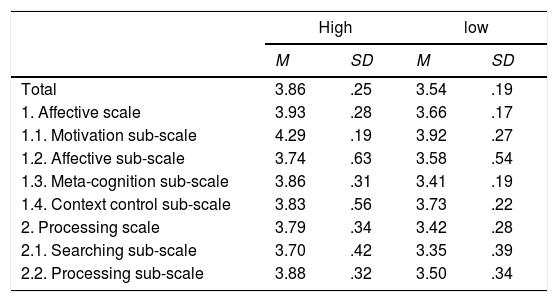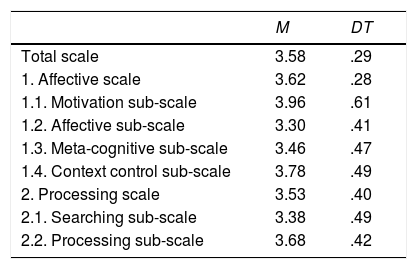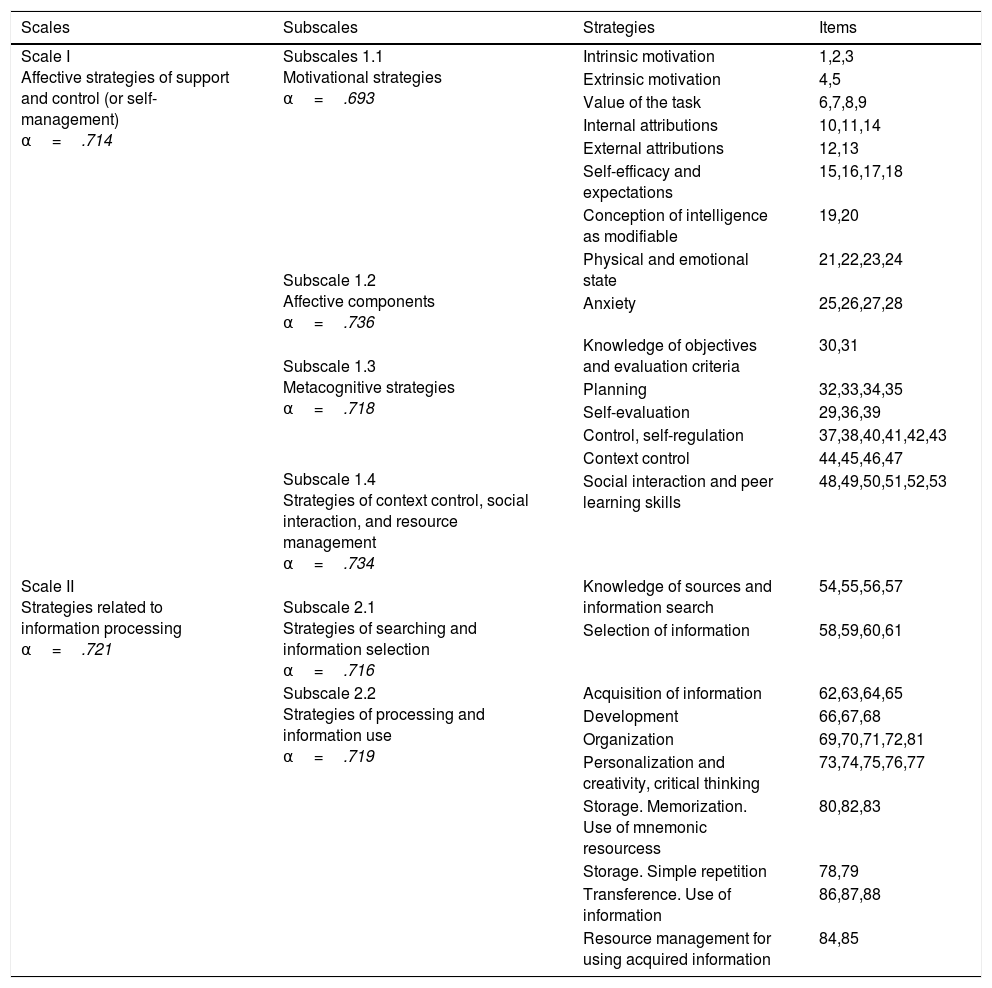The present study examined the learning strategies of university students and the differences in their use as a function of their performance on a fluid intelligence test, a scientific reasoning task, and a divergent thinking or creativity task — all of which are key skills involved in knowledge generation, which is one of the principal aims of the European Higher Education Area. We used 150 participants, divided into two groups according to their performance on the tasks. They completed a questionnaire of learning strategies for university students (CEVEAPEU), which assesses learning strategies organized into six subscales (motivational, affective, metacognitive, context-control strategies, information searching strategies, and information processing strategies). Those students with higher fluid and scientific reasoning skills reported a greater use of strategies aimed at context control (including social interaction and resource management), whereas participants with higher scores on the creativity task reported a significantly greater use of metacognitive, motivational, and purely cognitive strategies (information searching and processing). Overall, these results indicate that the use of learning strategies aimed at supporting and controlling information processing contribute to different reasoning skills, and suggest that the encouragement of social interaction and cooperation among university students would promote the development of basic cognitive skills such as creative thinking and problem-solving abilities.
En este estudio se analizan las estrategias de aprendizaje (EA) de estudiantes universitarios y las diferencias en su uso en función del rendimiento en una prueba de inteligencia fluida, una tarea de razonamiento científico y una tarea de pensamiento divergente o creatividad, por estar estas habilidades implicadas en la generación de conocimiento, una competencia clave en el actual Espacio Europeo de Educación Superior. Los 150 participantes se han dividido en dos grupos dependiendo de su rendimiento en las pruebas y han completado el Cuestionario de Evaluación de Estrategias de Aprendizaje en Estudiantes Universitarios (CEVEAPEU), que mide el uso de estrategias de aprendizaje organizadas en seis subescalas (estrategias motivacionales, afectivas, metacognitivas, de control del contexto, de búsqueda y de procesamiento de la información). Los estudiantes con mayores niveles de razonamiento fluido y científico reportan un mayor uso de estrategias de control del contexto (que incluyen la interacción social y el manejo de recursos), mientras que aquellos estudiantes con mayores niveles de creatividad informan de una utilización superior de estrategias metacognitivas y motivacionales, además de las puramente cognitivas (de búsqueda y procesamiento de información). En conjunto, estos resultados ponen de manifiesto que el empleo de diferentes estrategias de apoyo al procesamiento de la información contribuye a distintos tipos de razonamiento y apuntan la necesidad de potenciar la interacción social y la cooperación para la promoción del desarrollo de competencias cognitivas fundamentales, como el pensamiento creativo y la resolución de problemas, entre estudiantes universitarios.







